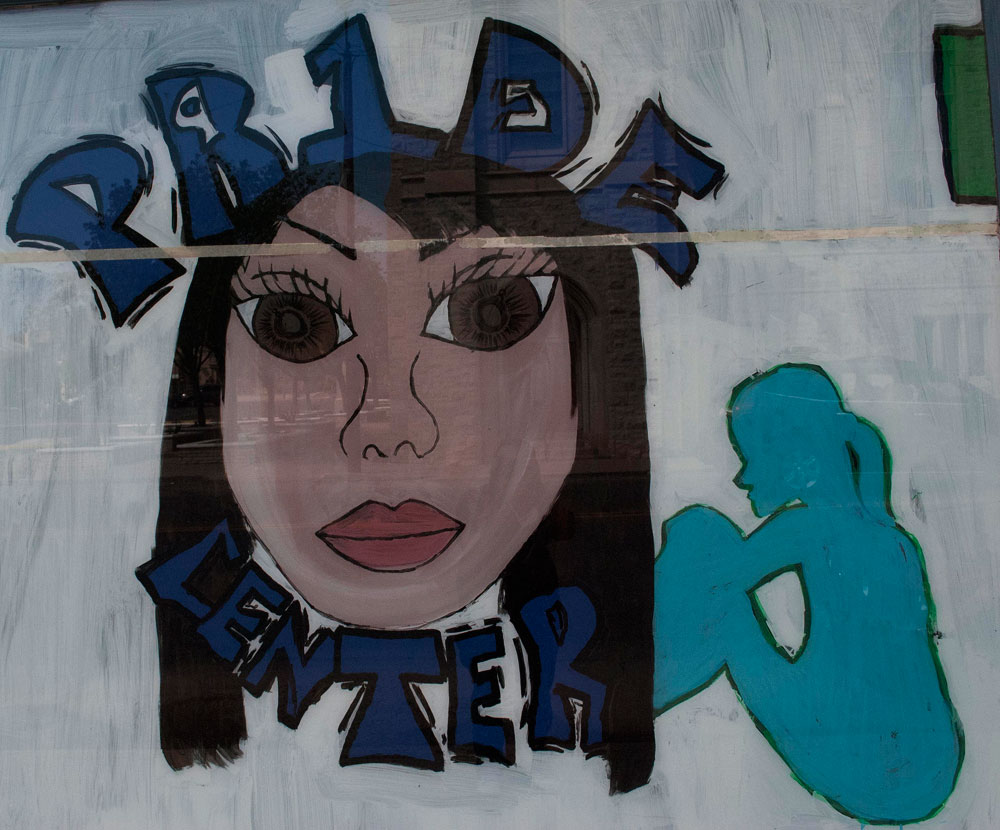
After aging-out of the state foster care system, Jessica Archuleta says she decided to take control of her life. She graduated from UTEP in 2011 and continues to work for the school's FHAR program, helping former foster youth and those in crisis-situations obtain needed resources. (David Acosta/Borderzine.com)
EL PASO — Once a foster child herself, Jessica Archuleta now helps former foster children achieve their goals of stability and higher education.
“Living through the foster care system didn’t define me. It didn’t get me where I was today,” said Archuleta, now an outreach specialist in the Foster, Homeless and Adopted Resource (FHAR) program at the University of Texas at El Paso.
“It was my own experiences in life and how I dealt with them. Realizing that helped me realize I wanted to help other people in their experiences and give them a positive outlook.” Archuleta says she and her brother were placed in child crisis centers more than 20 times.
“She has a real desire to mentor students in this situation. She has that credibility to say I’ve been where you’re at,” said FHAR director Beau Pijlaja.
Archuleta, 24, a recent UTEP graduate, also brings a degree in social work to bear when helping connect former foster care recipients to assistance that addresses their specific needs. While many of these resources have been available for some time, the FHAR program has only been in existence for two years. Archuleta is one of only 2 percent of former foster children who go on to earn a bachelor’s degree or higher in the U.S.
FHAR is not unique to UTEP, Pihlaja said. Many universities are just recently trying to raise awareness about programs available to students in crisis situations.
“I think most foster youth focus on trying to make it on their own,” Archuleta said. “Once they turn 18 they are trying to find out where they belong. It’s up to them whether they find education is that place.”
Archuleta was taken from her mother, who suffered from epilepsy and often mixed her medication with alcohol, at three-months old. Meanwhile, her father was “in-and-out of the picture.” When she was nine years old, they placed in the custody of an aunt in Arlington, Texas.
Two years later Archuleta was returned to her mother without the state’s knowledge. Although her mother had quit drinking, she still suffered from frequent seizures, leaving Archuleta to care for her and fend for herself. This led to poor grades and poor conduct in and out of school, she says. Eventually, the state discovered she was back in the care of her mother, who had long-since lost her parental rights.
Between the ages of 14 and 18 Archuleta was placed back in the foster system with six foster families even though the first family was kind and loving and willing to adopt her, she said.
“But, I was scared that a family would reject me again,” Archuleta said. “They were good, strict foster parents. I was told they wanted to adopt me and I asked to be removed. I felt that being attached was not normal.”
In Texas, roughly 900 children a year “age-out” of the foster system. According to the non-profit organization El Paso Human Services, 25 percent of them will become homeless and less than 20 percent will be self-supporting four years after leaving care. Roughly 50 percent will not earn a high diploma and will fail to hold a full-time job.
While some states allow young adults to stay in the foster system passed their 18th birthday if they are attending college, many foster children decide to leave at the first legal opportunity.
Upon aging-out, Archuleta said, her goal was the same as many other former foster children — to lead an independent life on her own rules. When she felt she had reached that goal of independence, she decided to put her past behind her and try to further her education, first at El Paso Community College, then transferring to UTEP.

The PRIDE center, located at 820 Montana Ave., assists current and former foster care youth, ages 16-25, in their transition to independent living. (David Acosta/Borderzine.com)
“I just realized I had already done all my bad stuff. I had already gone through that and I was ready to do try the opposite,” Archuleta said.
Texas is just one of seven states that offer a college tuition waiver to children who were in foster care or who were adopted through the state. Applicants for the state’s 2010 Education and Training Voucher Program numbered 1,158, but only 770 began, continued or completed at least one semester through the program.
“When you’re dealing with people in crisis situations, going to college may not be the first thing they are thinking about but that’s the perspective that we’re trying to change,” Pihlaja said. “College has the potential to be a place that can help people that are in unstable circumstances. A college campus has housing, food, health care. It’s like a self-sustained little city.”
Archuleta works closely with El Paso Human Services’ Preparation and Resources for Independence through Determination with Excellence (PRIDE) Center, which provides opportunities and services for current and former foster children ages 16-25 in their transition to independence. It was through some of the help she received from the PRIDE center that she first decided to transfer from EPCC to UTEP and obtain her bachelor’s degree.
Maria Seelig, a youth resource specialist at the center, says that because of Archuleta’s unique experience within the system, many of the center’s youth feel more at ease coming to her with questions about their transition and furthering their education.
Both Pihlaja and Seelig said that Archuleta is their respective program’s first success story. Archuleta was the first person registered with PRIDE to obtain a bachelor’s degree.
While she had her reservations at first, about working with former foster children because of her own experience, Archuleta said, she eventually decided it was the right path for her.


Tremendously illuminating thanks, I do believe your readers could possibly want far more reviews like that carry on the excellent work.
This was interesting. Do you know if there are any national programs uniting former foster children across the nation to advocate and help children growing up in the system now in various ways beyond just financial support for college. Groups that advocate change on a national level for a variety of issues. If you know of any such groups could you please contact me.
Thank you so much.
Katherine Curley